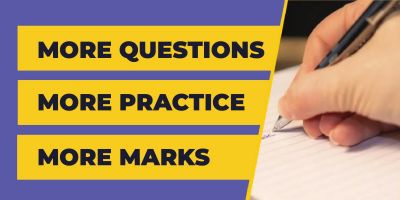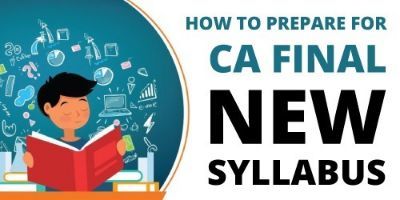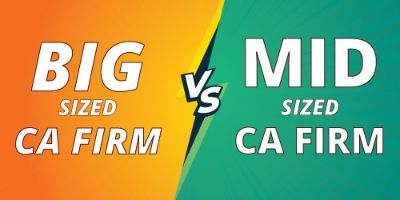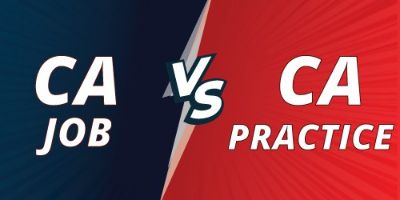0
You have no items in your shopping cart.
Search
RSS
Blog
Cracking the Code: Strategies for Success in CA Final Exams Thursday, November 23, 2023
Becoming a Chartered Accountant is a culmination of dedication, hard work, and strategic preparation. The CA Final exams serve as the ultimate challenge before entering the professional realm. Here are some tailored strategies to help CA Final aspirants navigate this crucial phase with confidence
WHY CHOOSING EXPERIENCED FACULTY IS CRUCIAL FOR CA EXAM SUCCESS ? Tuesday, October 31, 2023
WHY CHOOSING EXPERIENCED FACULTY IS CRUCIAL FOR CA EXAM SUCCESS?

Introduction:
The Chartered Accountant (CA) course in India demands a profound understanding of various complex subjects such as accounting, auditing, taxation, and business law. Successfully passing the CA examination requires not just theoretical knowledge but also practical application. Therefore, the choice of faculty becomes critical for students aiming to excel in this challenging professional journey.
Benefits of Experienced Faculty:
In-depth knowledge of the syllabus: Experienced faculty possess comprehensive knowledge of the CA course syllabus, providing students with a strong foundation and conceptual understanding of the subject matter.
Simplified learning: With the ability to explain intricate concepts in a clear and understandable manner, experienced faculty make the learning process easier for students who may find certain topics challenging.
Real-world application: Using practical examples and illustrations, experienced faculty help students grasp the practical application of the concepts, preparing them effectively for the demands of the CA examination.
Guided support: Experienced faculty offer valuable guidance, aiding students in creating effective study plans, identifying strengths and weaknesses, and addressing any areas of difficulty.
Up-to-date knowledge: Experienced faculty stay updated with the latest changes in the CA course syllabus and examination patterns.
Quality study materials: They have access to high-quality study materials and resources, enhancing students' learning experience.
Proven success record: With a track record of guiding numerous students to success in the CA examination, experienced faculty provide a reliable path to achievement.Personalized Learning Environment:
Tailored attention: Experienced faculty provide personalized attention, recognizing that students have diverse learning paces and styles.
Interactive approach: They create an interactive learning environment, encouraging student participation and fostering effective learning through discussions and interactive sessions.
Motivation and encouragement: Experienced faculty offer motivation and support throughout the challenging CA journey, ensuring that students stay inspired and focused on their goals.
Choosing the Right Faculty:
1. Seek recommendations from peers, family, and seniors.
2. Conduct thorough online research on faculty members' backgrounds and experiences.
3. Attend demo classes to assess teaching methodologies and styles.
4. Inquire about the faculty's success rates and track record to make an informed decision.
Conclusion:
To conquer the hurdles of the CA examination and achieve professional success, the significance of experienced faculty cannot be overstated. Their profound understanding of the course material, personalized guidance, and proven success record make them invaluable assets in a student's CA journey. By making a thoughtful choice in faculty, students can pave the way for a successful career as a Chartered Accountant.
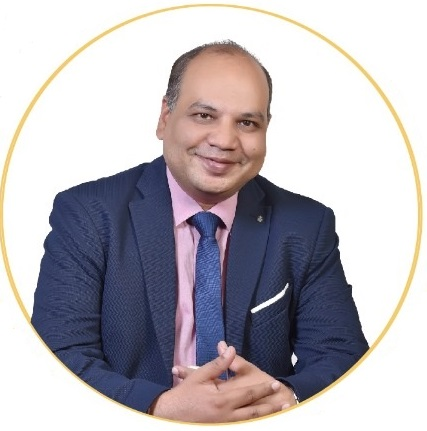
Author
CA CPA Vinod Kumar Agarwal
Founder - A.S.Foundation CA Coaching Classes, Pune
AIR 2nd, 4th & 24th in Foundation, Inter & Final respectively.
20+ Years of Rich Teaching Experience in CA Coaching
India's No#1 Faculty for FR / SFM / Accounts / FM Eco.
Best CA Coaching Classes In Pune Monday, October 30, 2023
Best CA Coaching Classes In Pune

Chartered Accountancy (CA) is a prestigious career path that sets the gold standard in the world of finance and accounting. To embark on this journey and
achieve this esteemed qualification, students require guidance and support from the best CA coaching institutes. Pune. In this blog, we will delve into AS
Foundation, a prime CA coaching institute in Pune & India, known for its exceptional teaching and remarkable results.
AS Foundation, founded by the eminent CA Vinod Kumar Agarwal, stands as a shining example of a CA coaching institute that strives for nothing but excellence with 20+ years of teaching experience. CA Vinod Kumar Agarwal at the helm, students are in the capable hands of a tutor with a passion for teaching and a deep understanding of the subjects.
Here's what makes AS Foundation a top choice for CA Inter and CA Final subjects:
Conceptual Clarity: CA Vinod Kumar Agarwal's teaching approach is nothing short of fabulous. His classes provide students with a deep and thorough understanding of the subjects. Complex topics are simplified, making even the most challenging concepts accessible to all.
Experienced Faculty: AS Foundation is not just about one exceptional teacher; it boasts a team of seasoned faculty members, including CA Rakesh Agarwal, CA Subodh Shah, and more. These teachers bring a wealth of experience and expertise to the table, ensuring that students receive well-rounded guidance.
Subject Expertise: The institute specializes in CA Final subjects like Financial Reporting (FR) and Advanced Financial Management (AFM) and CA Inter subjects like Advanced Accounting and Financial Management (FM). This specialization allows for a more in-depth focus on these subjects, which are known to be particularly challenging.
Passion for Teaching: What sets AS Foundation apart is the genuine passion for teaching that exudes from the faculty. This passion ignites a desire to learn and excel among students. The teaching style is engaging and interactive, making learning an enjoyable experience.
Remarkable Track Record: AS Foundation's consistent track record of producing successful CA candidates speaks for itself. Many students have found the institute to be a stepping stone to their dream career in chartered accountancy.
Conclusion
In the world of CA coaching institutes in Pune, AS Foundation, under the guidance of CA Vinod Kumar Agarwal, stands tall as a beacon of excellence. The institute's dedication to providing detailed conceptual clarity, experienced faculty, and a passion for teaching sets it apart. Whether you're preparing for CA Inter or CA Final subjects, AS Foundation offers a nurturing environment that can help you excel in your examinations.
When choosing a CA coaching institute, it's crucial to consider the expertise, passion, and track record of the faculty. AS Foundation checks all these boxes and more, making it a top choice for CA aspirants in Pune & India. As you embark on your journey toward becoming a chartered accountant, let AS Foundation be your guiding light to success.

Author
CA CPA Vinod Kumar Agarwal
Founder - A.S.Foundation CA Coaching Classes, Pune
AIR 2nd, 4th & 24th in Foundation, Inter & Final respectively.
20+ Years of Rich Teaching Experience in CA Coaching
India's No#1 Faculty for FR / SFM / Accounts / FM Eco.
Mastering the CA Final FR Exam: Study, Practice, and Revise for Success Friday, October 27, 2023
Mastering the CA Final FR Exam: Study, Practice, and Revise for Success
Are you on the path to becoming a Chartered Accountant (CA) and gearing up for the final Financial Reporting (FR) exam? This pivotal stage in your CA journey demands unwavering dedication, focused preparation, and a well-structured strategy. In this blog, we'll explore how to excel in your CA Final FR exam by emphasizing the importance of studying, practicing, and revising effectively.
The Power of Preparation
To conquer the CA Final FR exam, you need a meticulous and comprehensive preparation plan. Here's a breakdown of the key steps to ensure your success:
Study Diligently
Understand the Syllabus: Familiarize yourself with the CA Final FR syllabus to know what to expect in the exam. This helps in crafting a targeted study plan.
Quality Resources: Invest in high-quality study materials, textbooks, and online courses. You can use high-quality study materials from vknow.in, specifically provided by CA Vinod Kumar Agarwal Sir through A.S. Foundation. These resources can be a valuable addition to your study plan and can help you excel in your educational pursuits.
Effective Time Management: Create a study schedule that accommodates your personal commitments and includes regular, uninterrupted study hours.
Practice Regularly
Solve Past Papers: CA Final FR past papers are a goldmine. They provide insight into the exam pattern, question types, and difficulty levels. Attempting these papers is essential.
Mock Tests: Enroll in a good test series or take mock tests online to assess your progress and identify weak areas.
Group Study: Consider forming a study group to discuss concepts, solve problems, and gain a fresh perspective on complex topics.
Revise Strategically
Revision Schedule: Allocate sufficient time for revision in your study plan. Regular revisions help cement your knowledge.
Concise Notes: Create concise, clear, and organized notes summarizing key concepts. These will be your best companions during revision.
Engaging Study Techniques
Making your study routine engaging and interactive can enhance your understanding and retention of the material. Here are some techniques to consider:
Visual Aids
Utilize visual aids like flowcharts, diagrams, and graphs to represent complex accounting standards, ratios, and financial reporting principles. Visual representations make abstract concepts more concrete and easier to remember.
Mnemonics
Create memorable acronyms or mnemonic devices to remember lists, standards, or accounting principles. These can be quirky and fun, making the learning process more enjoyable.
Teach Others
Explaining concepts to others, even if it's just to an imaginary audience, reinforces your understanding. Teaching is one of the most effective ways to learn and retain information.
Online Forums
Engage with online CA forums and communities to discuss doubts, share insights, and learn from others. These communities offer valuable support and can keep you motivated throughout your CA journey.
Stay Balanced
While dedicated study is vital, don't forget to maintain a balanced lifestyle. Adequate sleep, regular exercise, and a healthy diet are crucial for optimal brain function. Take breaks, indulge in hobbies, and spend time with loved ones to relieve stress and stay motivated.
In conclusion, acing the CA Final FR exam requires a holistic approach. Study diligently, practice regularly, and revise effectively. Combine these efforts with engaging study techniques, and maintain a balanced lifestyle to ensure success. Remember, persistence and a positive mindset are your strongest allies on this challenging but rewarding CA journey. Good luck!

Author
CA CPA Vinod Kumar Agarwal
Founder - A.S.Foundation CA Coaching Classes, Pune
AIR 2nd, 4th & 24th in Foundation, Inter & Final respectively.
20+ Years of Rich Teaching Experience in CA Coaching
India's No#1 Faculty for FR / SFM / Accounts / FM Eco.
How To Prepare For The CA Final New Syllabus ? Thursday, October 26, 2023
How To Prepare For The CA Final New Syllabus ?
Introduction:
Renowned for its rigor, the CA Final exam in India underwent a significant overhaul with the introduction of the new 2023 syllabus. This detailed guide is crafted to assist you in navigating the intricacies of the updated curriculum and achieving success in this challenging examination.
Understanding the Exam:
The CA Final exam is divided into two groups, each encompassing a series of demanding papers that test a wide array of subjects. It is crucial to thoroughly comprehend the detailed syllabus, which can be accessed through the official ICAI website.
Strategizing Your Study Plan:
Devise a well-structured study plan that not only encompasses all the crucial topics but also includes a comprehensive selection of credible study materials aligned with the updated syllabus.
Effective Study Practices:
Establishing a disciplined study routine is key. Prioritize regular revisions and consistent practice with previous exam questions to become familiar with the exam format and question patterns. Additionally, engage in mock tests to assess your preparedness effectively.
Balancing Well-being and Preparation:
While intensive studying is essential, it is equally important to prioritize your physical and mental well-being. Remember to take regular breaks, maintain a nutritious diet, ensure sufficient rest, and integrate some form of physical exercise into your daily routine to enhance focus and concentration.
The Power of Collaborative Learning:
Harness the benefits of group study sessions and leverage memory techniques to reinforce complex concepts. Actively engaging in teaching others can significantly deepen your understanding and retention of key concepts.
Conclusion:
Excelling in the CA Final Exam requires dedication, discipline, and a strategic approach. By following the comprehensive guidelines outlined in this blog, you can optimize your preparation and significantly improve your chances of success in this rigorous examination.
Wishing you the very best in your CA Final exam preparation journey!

About Author
CA CPA Vinod Kumar Agarwal
Founder - A.S.Foundation CA Coaching Classes, Pune
AIR 2nd, 4th & 24th in Foundation, Inter & Final respectively.
20+ Years of Rich Teaching Experience in CA Coaching
India's No#1 Faculty for FR / SFM / Accounts / FM Eco.
TOP COURSES TO DO AFTER CA Saturday, February 4, 2023
TOP CA COURSES TO DO AFTER CA
Introduction
The world of finance and accounting offers a myriad of career opportunities, and a Chartered Accountant (CA) is in a unique position to explore these paths. In addition to traditional roles, CAs can specialize further by acquiring additional qualifications. This blog explores some of the top career avenues for CAs and the additional qualifications that can elevate their professional journey.
Investment Banking – A Top-Trending Career
To embark on a career in Investment Banking, consider short-term training in two fundamental skills: Financial Modeling and Valuation. Key profiles include Valuation Analyst, Investment Banking Analyst, and M&A Analyst. Employers like JP Morgan, Goldman Sachs, and Morgan Stanley offer enticing opportunities, with starting salaries ranging from 9 to 10 lakhs per annum.
CFA (Chartered Financial Analyst)
Combining a CA qualification with a CFA designation broadens your financial expertise and enhances your international recognition. Opportunities in Portfolio Management, Equity Research, and Valuations await, with employers such as Goldman Sachs, JP Morgan, and Deloitte. Salaries for CA+CFA professionals average between 8 and 12 lakhs.
LLB (Bachelors of Law)
Earning an LLB degree provides CAs with a strong grasp of legal language, granting them an edge in drafting appeals and presenting cases. Specializations include Civil Law, Corporate Law, Labor Law, and more. Salaries start from 70,000 to 1,00,000 per month.
FRM (Financial Risk Manager)
The globally recognized FRM designation is ideal for managing risk in banking, insurance, or consulting. Employers like ICBC and Deloitte seek FRM professionals, with starting salaries around 7-8 lakhs. Roles include Risk Manager and Credit Manager.
CS (Company Secretary)
Many CA subjects overlap with the CS curriculum, making it a valuable addition. CA+CS professionals have increased prospects in areas like Taxation, Audit, and Corporate Law. Salaries for Company Secretaries range from 6 to 7 lakhs.
CPA (Certified Public Accountant)
Similar to CA, CPA is the American equivalent. It's essential for practicing as a Public Accountant in the US. CAs with a CPA degree can work in assurance services, forensic accounting, tax planning, and more, with average salaries ranging from 8 to 10 lakhs.
ACCA (Association of Chartered Certified Accountants)
ACCA offers exemptions for several CA papers. The qualification opens doors to roles in assurance services, forensic accounting, and more, with an average salary between 8 to 10 lakhs. It also provides global opportunities.
MBA
Combining a CA qualification with an MBA degree can lead to a high-flying corporate career. Salaries for CA+MBA professionals range from 10 to 15 lakhs. Pursuing an MBA from a reputed institute can yield even higher returns.
Conclusion
Chartered Accountants are in high demand, not just in traditional roles but also in a wide range of specialized careers. Additional qualifications can open up new avenues and increase earning potential. Whether you're interested in finance, law, risk management, or business administration, there's a path that suits your aspirations. Invest in your professional growth, and the financial world will reward you with abundant opportunities.

Author
CA CPA Vinod Kumar Agarwal
Founder - A.S.Foundation CA Coaching Classes, Pune
AIR 2nd, 4th & 24th in Foundation, Inter & Final respectively.
20+ Years of Rich Teaching Experience in CA Coaching
India's No#1 Faculty for FR / SFM / Accounts / FM Eco.
REASONS WHY MOST OF THE STUDENTS FAIL IN CA EXAM Saturday, February 4, 2023
REASONS WHY MOST OF THE STUDENTS FAIL IN CA EXAM
It's imperative to recognize that pursuing the Chartered Accountancy (CA) designation is no ordinary educational journey. The path to becoming a CA is known for its challenging exams, where success is far from guaranteed. Aspiring CAs must understand that there are no shortcuts to success – only diligence, determination, and patience will ultimately pay off. Furthermore, as one progresses through the levels of CA examinations, the difficulty level intensifies.
After the exam results are announced, we witness a spectrum of emotions. There are the jubilant faces of candidates who've conquered the tests, their hard work bearing fruit as they eagerly embark on promising careers. Conversely, there are those disheartened individuals who couldn't clear the exams. The reality is that pass rates for these professional exams are notoriously low, leaving only a handful of candidates celebrating success, while many face the harsh label of "failed."
What's interesting is that a substantial proportion of CA exam candidates have demonstrated outstanding academic records throughout their education. Therefore, when they confront failure, they are often deeply affected, grappling with demotivation and even depression.
A student's success or failure in these exams hinges on various factors, all of which deserve careful consideration. These factors include study approach, attention to detail, punctuality in attending classes, exam preparation methods, test-taking strategies, note-taking skills, learning methods, self-confidence, and involvement in study-related extracurricular activities. These elements play a pivotal role in determining success and the grades achieved in CA exams. It is crucial to adhere to these fundamental study principles to avoid further failures and ensure success.
Here are some common pitfalls that students must avoid to increase their chances of success in CA exams:
1. Inadequate Planning and Time Management Skills
Many students embark on their CA journey without a clear commitment to their own career. Enrolling in a course simply because friends are doing so is not a wise decision. To succeed in CA exams, serious dedication is paramount. This often means sacrificing non-essential activities like social gatherings, parties, and other distractions.
Effective time management is essential in creating a study schedule that allows you to thoroughly cover all subjects. Rather than starting with the first chapter of a textbook, it's wise to plan your subjects, gauge your interests, and grasp the overall structure and significance of the book. Leaving no chapter unattended is vital.
2. Wrong Choice of Study Materials and Neglect of ICAI Resources
Choosing the right study materials is crucial. Students should use the materials recommended by their coaching teachers while not neglecting the resources provided by the Institute of Chartered Accountants of India (ICAI), such as study materials, practice manuals, RTPs, and MTPs. These resources help students understand how the Institute phrases questions and expects answers.
The ICAI study material is often considered the holy grail for CA students. Reading this material thoroughly is essential, with other reference books coming into play, particularly for theory subjects.
3. Neglect of Proper Answer Writing
Many students consider rough work sufficient for practice, but this approach is flawed. Practicing as if you are taking the final exam is essential. This habit ensures that you maintain speed and accuracy during practice sessions.
Students often tick answers in textbooks, which is different from writing out complete answers in the exam. It's crucial to practice writing full answers in your notebooks.
4. Inadequate Time Allocation for Revision
A robust revision plan is irreplaceable. Without a doubt, a proper revision plan is one of the most crucial aspects of CA exam preparation. It ensures that you retain and reinforce the knowledge you've acquired.
5. Underestimating Theory in Practical Papers
Theory is sometimes given less emphasis in practical subjects, which is a mistake. Adequate preparation for theory in practical subjects is equally important. To address this, create notes based on frequently asked theory questions from scanners or the study material.
These are some of the primary reasons why CA students fail to clear their exams despite working diligently. However, they aren't the sole culprits.
In addition to these factors, there are other fundamental reasons that contribute to poor performance in exams:
6. Overemphasis on Crafting the Perfect Study Plan and Timetable
There's no one-size-fits-all study plan that suits every student. Each student has unique strengths, weaknesses, and capabilities. Plan your study regimen based on your individual assessments.
7. Dilemmas About Attempting Single Group or Both Groups
The choice between attempting a single group or both groups depends on your preparation, time availability, and your ability to handle the workload. Seek advice if you must, but remember that you are the best judge of your capabilities.
8. Poor Presentation Skills
Presentation skills matter in CA exams. Rank holders often attribute their success to superior writing skills. Work on your presentation skills, as effective communication is essential.
9. Accepting Unsolicited Advice
Many CA students accept advice from peers without considering the source's expertise. Avoid taking advice from non-experts, as it can be more distracting than helpful.
10. Lack of Self-Awareness and Assessment
Relying solely on coaching classes without developing your own assessment and analytical skills can hinder your progress. Understand the examination pattern and plan your preparation accordingly.
11. Listening to Motivation without Implementation
CA students often listen to motivation from various sources but fail to translate that motivation into action. Implement the advice and guidance you receive.
12. Failing to Analyze Mistakes
Failure is not arbitrary; it happens for a reason. Each failure provides an opportunity to learn and grow. Analyze your failures to gain wisdom and improve.
13. Succumbing to Stress, Panic, and Depression
Look at your failure objectively and stay strong. It takes courage to overcome the frustration of a failed exam. Understand that a single failure doesn't define your entire life.
In conclusion, while CA exams are undoubtedly challenging, success comes to those who dedicate themselves wholeheartedly. Earning the prestigious CA designation requires unwavering commitment, proper planning, and consistent effort. Many students falter because they neglect these fundamental principles. Avoid these pitfalls and give your best effort, and you'll be on your way to achieving your dream career. CA is a highly esteemed qualification that is worth every ounce of effort you invest.
Remember that many students don't put in the required level of hard work, leading to demotivation and lost time. By avoiding these mistakes and giving your all, you can clear the exams and set yourself on the path to a successful career.

Author
CA CPA Vinod Kumar Agarwal
Founder - A.S.Foundation CA Coaching Classes, Pune
AIR 2nd, 4th & 24th in Foundation, Inter & Final respectively.
20+ Years of Rich Teaching Experience in CA Coaching
India's No#1 Faculty for FR / SFM / Accounts / FM Eco.
EFFECTIVE TIPS TO CLEAR IN FIRST ATTEMPT Saturday, February 4, 2023
EFFECTIVE TIPS TO CLEAR CA IN FIRST ATTEMPT
Expand Your Study Horizons
Approaching your CA exams is akin to navigating an expansive sea. It's crucial not to fall into the trap of selective studying. Instead, commit to thoroughly exploring every topic within the entire syllabus.
Revise, Revise, and Revise
Regular revision is the key to cementing your understanding of the material. Ensure your concepts are crystal clear. Aim to revise the entire syllabus at least two or three times before facing the examinations. Additionally, solving previous years' question papers is a valuable practice.
Take a Break from Social Media
In the age of constant connectivity, it's essential to disconnect from the online world temporarily. Use the internet exclusively for your studies and avoid wasting time on social media. Turn off notifications and hide social media apps during your study sessions.
Commit to a Minimum of 14 Hours of Effective Study Per Day
Success in CA exams demands a significant investment of time. Dedicate a minimum of 14 hours each day to sincere, focused study. This commitment ensures that you have adequate time to cover all the necessary topics and allows for revision and mock tests.
Craft a Daily Schedule
A well-structured study schedule is vital for success. Give equal weight to all the subjects and topics within your syllabus. Create a customized timetable that incorporates mock tests and practice of previous years' papers.
Tackle Theory Subjects Methodically
Theory subjects can be particularly daunting due to their extensive content. Regularly revisit and revise theory subjects to stay on top of the vast amount of information they encompass.
Create Your Own Study Notes
Attempting to cover the entire syllabus in a single day is an unattainable feat. Crafting your own study notes is an invaluable strategy for facilitating quick and efficient revision. Short notes summarizing important concepts are a helpful resource for prompt review.
Polish Your Presentation Skills
Presentation skills play a pivotal role in CA exams. Work on enhancing the quality of your answers, ensuring clarity and conciseness. Improving your handwriting can also contribute to a better presentation. Regularly practice from Suggested Answers, RTP (Revision Test Papers), and MTP (Mock Test Papers) to refine your exam technique.
Stay Positive and Take Care of Your Well-being
CA exams place substantial demands on your mental and emotional well-being. Incorporate yoga, exercise, and meditation into your daily routine to manage stress. Prioritize a balanced diet and ensure you get sufficient rest for peak performance.
On Exam Day
During the exam, remember that you don't have to answer every question to pass. Focus your efforts on the questions you are most confident about. Avoid dedicating excessive time to a single question. After a brief break, shift your focus to the next exam. It's a fresh opportunity and a new day.
Aim for Excellence and Recognition
"Ordinary" and "extraordinary" are separated by that little word "extra." To achieve success in your CA exams, go the extra mile. Cultivate a passion for recognition and accomplishment. Put in extra effort, extra focus, and infuse every aspect of your preparation with that extra dedication. If you are ready to commit to the "extra," achieving a rank is well within your reach.
In summary, the path to success in CA exams is a rigorous one. Avoid the pitfalls of selective studying, stay committed to thorough revision, and maintain a disciplined schedule. Your dedication to excellence, along with your focus on well-being, will ultimately pave the way for your achievements.

Author
CA CPA Vinod Kumar Agarwal
Founder - A.S.Foundation CA Coaching Classes, Pune
AIR 2nd, 4th & 24th in Foundation, Inter & Final respectively.
20+ Years of Rich Teaching Experience in CA Coaching
India's No#1 Faculty for FR / SFM / Accounts / FM Eco.
HOW TO SCORE 80+ in CA FINAL SFM EXAM Saturday, February 4, 2023
HOW TO SCORE 80+ in CA FINAL SFM EXAM
By CA, CPA Vinod Kumar Agarwal
IS SFM AS A TOUGH SUBJECT ?
- Many students consider SFM as a tough subject to handle and score,
- SFM can be managed easily with good score in exam.
- This is not the case.
HOW SHOULD ONE PREPARE FOR CA FINAL SFM EXAM
- I would like would like to give some guidance on CA final SFM Paper based on my experience.
ABOUT THE SFM SUBJECT
HOW TO PREPARE?
|
|
|
|
|
|
|
CONCEPTS BUILDING |
| SIZE OF THE SYLLABUS |
| STUDY MATERIAL |
| STRATEGY |
|
|
|
|
|
|
|
HOW TO STUDY THEORY:-
SOURCES OF PREPARATION/BOOKS TO BE REFERRED:
|
|
|
|
|
|
HOW TO GET 80 +
- Prepare Theory on daily basis.
- Make your own formulae book.
- Practice solving a good number of questions on each topic (SM, PM, RTP, Suggested answers, MTP, notes, Reference Book).
- Try to solve each problem on your own.
- Don’t refer to solution from your notebook or any where else.
- Use proper format for presentation.
- Adequate Working Notes in supporting to your answers.
- State the assumption clearly.
- Avoid overwriting. Strike off and write again.
- If there is a question for which you do know the answer but do not have the time to write it fully, write a synopsis for the answer.
OTHER KEY POINTS
- SFM, the question paper is purely practical. Therefore, you have to practice solving a good number of questions on each topic.
- Try to solve each problem on your own (by yourself), in spite of just auditing the solution from notebook or study material. So, do practice on regular basis. Don’t refer to solution from your notebook or any where else.
- Go through each and every topic thoroughly and understand conceptual points supporting each topic.
- Try to solve as many questions as you can and also go through Practice Manual, Revision test papers, Suggested answers, Mock Test papers. (to the extent possible and available).
- You should test your preparation by attempting some previous exam paper, revisions test papers, mock test papers under ultimate exam condition or environment. Later on check the result of your effort and make necessary correction/modification to your study preparations.
- I personally recommend you to attempt Revision test papers, Suggested answers, Mock test papers at least one in a day. You will find variety of questions and you will never get disappointed in exam hall.
- Always leave left hand page for showing workings, assumptions and notes. Workings are a must for the answer to be valid and should be fairly elaborate. Present them parallel to the question concerned. Use last page of the booklet for rough work.
- You are advised to practice such numerical questions which cover the technical points, formulas and adjustments of entire chapters.
- Before answering any question you need to make a rough solution in your mind and then go accordingly. No need to make hurry in papers like SFM as one mistake may spoil your entire efforts. In SFM you won’t get amendments very frequently, so no need to worry about amendments etc.
Æ Believe me, if you would study in this way, would be able to secure good marks in the
subject.
Æ I sincerely believe that the suggestions mentioned above would be of some help in SFM
preparation.
FAILED IN CA EXAMS - Its OK Saturday, February 4, 2023
FAILED IN CA EXAMS - Its OK
Embrace Failure as a Stepping Stone to Success in CA Exams
Failing a CA final exam is not a defeat; it's a step towards your ultimate goal of becoming a Chartered Accountant. There is no shame in admitting your failure. Many successful CAs stumbled on their journey but eventually found their footing in the professional world.
1. Analyze Your Failures Objectively
Rather than attributing your failure to luck or external factors, it's crucial to be candid with yourself. Take a hard look at the reasons behind your unsuccessful attempt and jot them down on paper. These reasons could range from inadequate preparation and leaving gaps in your subject knowledge to pre-exam nerves or time mismanagement. This self-assessment is a critical first step toward improvement.
2. Conduct a SWOT Analysis of Subjects
Perform a SWOT analysis on each subject. Recognize your strengths and weaknesses, and use this knowledge to tailor your study approach. Identify the subjects where you need to invest extra effort to ensure success.
3. Understand Your Body and Mind
Learn when your mind is at its most receptive. It may be during the early morning, late at night, or in the afternoon. Capitalize on this by dedicating these peak times to tackle challenging subjects that require your full concentration.
4. Plan Your Preparations Strategically
A well-thought-out plan is the foundation of your success. Having a clear action plan is essential. Determine how much time you will allocate to each subject or topic, and establish revision schedules. Keep tabs on your progress regularly to stay on track.
5. Avoid Negative Influences
Surround yourself with positivity and support. Steer clear of negative people and environments. Avoid those who constantly remind you of your past failures or propagate pessimistic views about the exams. Maintain a positive and uplifting atmosphere that encourages your efforts.
6. Revise, Revise, Revise
Effective revision is your passport to success. Write out solutions to problems, even if you know them well. Avoid the pitfall of solving practical problems orally; write them down. Plan your study regimen to ensure at least three complete revisions of important topics, fostering confidence in your knowledge.
7. Make Use of Mock Tests, RTPs, and Suggested Answers
Mock Test Papers (MTPs) are invaluable for understanding the exam's pattern, while RTPs and Suggested Answers instill confidence that your preparation is thorough. Incorporate these resources into your study routine for comprehensive readiness.
8. Conquer Pre-Exam Nervousness
An hour before the exam, keep a clear head. Counter nervousness by affirming your preparedness and ability. Remind yourself that you've diligently studied, done your best, and are fully equipped to excel in the exam.
9. Prioritize Proper Sleep
Don't underestimate the power of a good night's sleep. Adequate rest is essential for maintaining clarity and focus during exams. Prioritize sleep in your exam-day routine.
In conclusion, every stumble in your CA journey is a chance for growth and improvement. Failure is not an endpoint but a stepping stone towards your dream of becoming a Chartered Accountant. Remember these tips, stay committed to your goals, and keep moving forward. Best of luck in your exams; your success story is waiting to be written!

Author
CA CPA Vinod Kumar Agarwal
Founder - A.S.Foundation CA Coaching Classes, Pune
AIR 2nd, 4th & 24th in Foundation, Inter & Final respectively.
20+ Years of Rich Teaching Experience in CA Coaching
India's No#1 Faculty for FR / SFM / Accounts / FM Eco.
DIFFERENT FIELDS OF ARTICLESHIP Saturday, February 4, 2023
DIFFERENT FIELDS OF ARTICLESHIP
Embarking on articleship in the world of Chartered Accountancy is a pivotal juncture in your professional journey. It's an opportunity to bridge the gap between theory and practice, offering hands-on experiences and insights into the dynamic business landscape. Here, we delve into the various facets of articleship and its diverse branches:
1. Statutory Audit - Unveiling Financial Realities
During your articleship in statutory audit, you dive into the heart of financial statement examination. Your role involves scrutinizing the financial statements of clients to ensure compliance with relevant laws and regulations. This firsthand experience teaches you the art of interpreting financial records and boosts your confidence as you interact with senior management. It's a journey that often involves significant travel, allowing you to witness diverse industries and their operations.
2. Taxation - Navigating the Tax Landscape
In the realm of taxation, you have the opportunity to explore both direct and indirect tax systems. This field is an excellent fit for those looking to build careers in tax computation, tax advisory, tax structure, tax planning, and tax litigation. Unlike statutory audit, taxation articleship usually doesn't require extensive travel. A stint with a mid-sized firm or a Big4 can provide you with in-depth knowledge of tax provisions, procedures, and minutiae.
3. Internal Audit, Risk, and Advisory - Enhancing Business Efficiency
Internal audit, risk, and advisory articleship focuses on improving a company's controls and performance. It's an exploration of various business processes and ensures adherence to established policies and norms. This field demands substantial travel but enriches your understanding of businesses, and enhances your communication skills.
4. Mergers and Acquisitions - The Art of Evaluating Investments
Mergers and acquisitions involve offering expert advice on corporate consolidations, investments, and due diligence. It's your job to assess the viability of an investment or divestment. This articleship path equips you with a profound understanding of how valuations are carried out in real-world business scenarios.
5. Forensic Audit - Unearthing Fraudulent Acts
Forensic audit is an investigation-centric field that deals with fraud detection. It's a sensitive area, and consequently, not many firms offer articleship opportunities in this domain. A forensic audit seeks to identify and analyze evidence of fraudulent activities.
6. Transfer Pricing - Navigating International Transactions
With the globalization of businesses and the proliferation of multinational corporations, transfer pricing is gaining prominence. It deals with international transactions and taxation. Your role involves evaluating the transfer of goods, services, or intellectual property between related entities. The scope for this specialization is expanding rapidly.
In Summary - Charting Your Path
Choosing the right articleship field is a significant decision in your CA journey. Take time to identify your interests and inclinations. Opt for an area that provides a holistic learning experience, aligning with your long-term career aspirations.
In conclusion, articleship is not just a mandatory requirement; it's a transformative phase in your professional development. It's a time to immerse yourself in the real world of accounting, where theory meets practice, and you lay the foundation for your future success as a Chartered Accountant.

Author
CA CPA Vinod Kumar Agarwal
Founder - A.S.Foundation CA Coaching Classes, Pune
AIR 2nd, 4th & 24th in Foundation, Inter & Final respectively.
20+ Years of Rich Teaching Experience in CA Coaching
India's No#1 Faculty for FR / SFM / Accounts / FM Eco.
WHAT SHOULD YOU DO ONE DAY BEFORE THE EXAM AND ON EXAM DAY Saturday, February 4, 2023
WHAT SHOULD YOU DO ONE DAY BEFORE THE EXAM AND ON EXAM DAY
The day before your exam:
1. Relaxation is Key
The day before the exam, the most important word is "RELAX!" Take a deep breath and calm your nerves. You've put in months of preparation; now is the time to bring it all together.
2. Review Your Notes
Your study notes should be your best friends at this point. Ideally, you've prepared summaries or highlighted essential sections for quick reference. Focus your last-minute revision on these key areas.
3. Prioritize Sleep
A good night's sleep is essential for maintaining alertness during the exam. Rest well and recharge your mind.
On the Exam Day:
1. Continue to Stay Calm
Once again, remember to "RELAX!" Reach the exam center at least half an hour before the scheduled time. Ensure you have all necessary items, such as your admit card and stationary.
2. The Hour Before the Exam
The hour leading up to the exam is crucial. Do whatever makes you feel confident and composed. We recommend taking at least 30 minutes to calm your nerves before the exam officially begins.
3. You've Got the Paper
As you receive the paper, you may find that you're unsure about the first question. Remember, you don't have to answer every question to pass. Focus on providing correct and well-structured answers, not on attempting every single question.
During the Exam: Time Management
Time management is a key factor during the exam. Here's a breakdown:
Total exam time: 180 minutes
Time required for initial paper inspection, writing your roll number, signing attendance sheets, and setting up your sheets: 10 minutes
Minimum time for paper revision: 10 minutes
Time left for writing the paper: 160 minutes
Total marks: 100
Time available per 1-mark question: 1.6 minutes
Allocate your time wisely and avoid spending too much time on a single question.
After the Exam: A Fresh Start
After submitting your paper, your exam cycle starts again for the next one. Some crucial post-exam tips:
Don't check your paper yourself.
Avoid discussing the paper with fellow students or searching for answers in textbooks.
Head home and prepare for your next exam.
Writing an Exam: Tips for Success
Your exam paper is your way of communicating with the examiner. It's not just about correct answers; it's also about effective presentation.
How to Answer Practical Questions
Explain your answers in a step-by-step manner, demonstrating a clear thought process. This allows the examiner to follow your logic and understand your approach.
How to Answer Theory Questions
For theory questions, presentation is paramount. Break your answers into paragraphs or bullet points. Underline headings and main points to guide the examiner's attention. Avoid using pencil or highlighters, and make sure your handwriting is legible, as poor handwriting and grammatical errors can leave a negative impression.
A Golden Rule: Make It Easy for the Examiner
Efficiently planning your answers before writing is essential. Your presentation begins with your planning. If you make it easy for the examiner to follow your responses, they are more likely to reward your efforts.
In conclusion, staying calm, managing your time effectively, and presenting your answers clearly are essential elements for success in your exams. By following these guidelines, you can optimize your performance and increase your chances of excelling in your Chartered Accountancy exams.

Author
CA CPA Vinod Kumar Agarwal
Founder - A.S.Foundation CA Coaching Classes, Pune
AIR 2nd, 4th & 24th in Foundation, Inter & Final respectively.
20+ Years of Rich Teaching Experience in CA Coaching
India's No#1 Faculty for FR / SFM / Accounts / FM Eco.
WHY RECORDED LECTURES ARE SUPERIOR TO ONLINE LIVE LECTURES Saturday, February 4, 2023
HOW TO MAKE ONLINE STUDY AT HOME MORE EFFECTIVE Saturday, February 4, 2023
HOW TO MAKE ONLINE STUDY AT HOME MORE EFFECTIVE
By CA, CPA Vinod Kumar Agarwal
MAKE STUDYING AT HOME MORE EFFECTIVE
- Cooped up at home, for the last four months, students have been attending virtual classes at their homes.
- The students can’t interact with their classmates or teachers in the real world.
- They feel sad, worried and confused.
- For some, e-learning might be even tougher than being in class.
- But there are some ways to stay focused and make lockdown learning a better experience.
YOUR BED MAY SEEM COMFY, BUT IT’S NOT FOR STUDYING
- While you may be more inclined to study on your bed or the sofa, it’s not exactly a smart choice.
- Doing so can lead to bad posture and body ache.
- You might even fall asleep while you study on your bed!
YOUR BED MAY SEEM COMFY, BUT IT’S NOT FOR STUDYING
- While you may be more inclined to study on your bed or the sofa, it’s not exactly a smart choice.
- Doing so can lead to bad posture and body ache.
- You might even fall asleep while you study on your bed!
PAY ATTENTION TO LIGHTING
- Make sure the spot you pick as your studying corner has plenty of natural lighting.
- If you are studying in the evening or night time, find a spot directly under the light or use a table lamp.
CHANGE UP YOUR SCHEDULE
- If you are used to studying early in the morning, then shift study time to right after lunch or late evening.
- You can instead catch some extra sleep in the morning or even use it for meditation or working out.
TAKE REGULAR BREAKS
- Instead of studying non-stop for hours, take some mini breaks.
- Make yourself a yummy snack, stretch, spend some time with your parents.
- If you have a pet, relax in their company.
- The point is to get away from the study space and refresh your mind.
HAVE MULTIPLE STUDY SPOTS
- Try to find more spots where you can study.
- This can be in your room, in one corner of the living room and if you have a big kitchen, you can use that, too!
- If you have a quiet rooftop or garden, when the weather allows, you can think about shifting your study time outdoors.
SET UP A STUDY SPACE
- Sitting on the right chair, having the table at a certain height etc., are also important.
- Make sure you keep your study spot clean and clutter- free.
- Too many things around you can either distract you or discourage you from spending time there.
- Instead, to make that spot feel more like a classroom, get a chair, a desk and even a little cupboard to store your study material.
All the Best !!!
Big Sized Firm vs Mid Size Firm Saturday, January 28, 2023
BIG SIZED FIRM V/S MID SIZED FIRM
By CA, CPA Vinod Kumar Agarwal
INTRODUCTION
- Articleship is a 3-year practical training phase that allows students to work on real assignments for real employers. It is a mandatory part of the CA program, and it provides a better overall learning experience. Articleship Training is one of the golden periods in the life of CA Aspirants. It is a golden roadmap for a CA Student from where he can gain exposure.
- It has been seen amongst students that they are a bit confused while choosing a firm for the articleship training.
Choosing the right CA Firm for your Articleship
A good CA Articleship experience helps in understanding the practical aspects of what you have studied. Hence choosing the right CA articleship firm is important not only for CA final exams but also for success in future practices.
What do Big 4 Firms & Mid-Sized Firms offer?
- You got to learn Auditing at its best. The same will not apply to small clients in mid-sized firms.
- Your role is much specified in Big 4 firms i.e., you will learn one aspect of accounting in every detail. In a mid-sized firm, your role is not defined, and you must learn everything. You will not specialize in a specific area.
- The way of working, procedures, and the method of achieving the same ultimate objective differs in big4 and midsize firms.
Which is appropriate for me?
Now the question of where you should join arises. The answer is that it depends upon where you wish to be in the long term. Some general scenarios are:
- Auditing & Accounting related jobs in larger companies: Articleship in Big 4 Companies.
- Jobs in big companies in other fields: Articleship in Big 4, with the effort to learn things on your own, which may be a prerequisite in those other fields.
- Jobs in small companies: Any option is fine, Big 4 firms are preferred.
- Practice in non-Metro Cities: Articleship in a mid-sized firm
- Practice in Metro Cities: Articleship in Big4 either in taxation or in the auditing department.
- Working in Start-up: Articleship in a mid-size firm
- Small Scale Business: Articleship in a mid-size firm
Factors to consider while choosing a Mid-sized firm for Articleship
As your CA articleship will shape your career ahead, then go with the best opportunities available to you, it is important to take decisions on correct parameters and not on a random basis. Following are the factors which must be kept in mind while joining the mid-sized firm:
- The number of experienced partners: More the number of experienced partners, better would be the development of the firm as a convention, and in turn, more opportunities for you to learn.
- Size of firm & number of articles: Prefer firms which have at least 15-20 articles and a few Chartered Accountants as Managers, apart from the Partners. Learning at these firms is generally better than firms where the number of articles is few.
- Areas of work and scope of assignment: The whole point of working in a midsize firm is to learn a variety of work and therefore, it is important to choose a firm that allows you to gain experience in different types of assignments.
- Overall work environment: An encouraging and cheerful environment in the office usually helps your overall development. Factors to consider while choosing a Big 4 firm for Articleship.
Factors to consider while choosing a Big4 firm for Articleship
As such there aren’t many differences among the Big Four Firms as they all operate in almost the same way, especially when it comes to training articles. So, once you have decided to join a Big Four firm, the only question left to ask is the choice of city and the choice of department. Choose a city near your hometown and a department based on your plans. Big Four Firms usually hire in the auditing department and the options of Articleship in other departments like Business Taxation, Indirect Taxation, Financial Advisory, etc. are rare.
Factors to not consider while joining Articleship
- Stipend: The total loss of stipend will be compensated in a single month after becoming a CA if you focus on gaining experience and not earning money.
- Work Pressure: Work pressure is always going to be there in real jobs, irrespective of what career roadmap you choose. So it is better to learn to handle pressure at an early stage rather than running away from it.
- Friends: Consider Articleship as an opportunity to network with new people as networking is a skill that is important in the long run. So don’t worry if you don’t have friends at the firm, and, don’t join a firm simply because you have friends there.
- The study leaves: In general, all firms allow at least 3 months and on average 4 months of study leave for CA Final examination. More study leaves don’t help you in your preparation, it usually gets wasted.
Conclusion
The choice of CA Articleship firm is a very important decision and therefore, make sure you choose wisely, as your career path depends upon it. And once selected, do your job with utmost honesty with a focus on learning. Never say no to any learning opportunity. You can blame the education system for its stiffness in ranking students' knowledge, however, Articleship is an open platform and a real-life experience. So don't make excuses for not performing well in this department of your career.
CA Practice v/s CA Job Thursday, January 26, 2023
JOB V/S PRACTICE AFTER CA
By CA, CPA Vinod Kumar Agarwal
THE DILEMMA
- Having got through CA Final, the question that revolves around CA fresher is whether to pursue job or practice.
- This is dilemma that mostly every CA fresher has faced.
- Sometimes your heart says one while brains say another.
- Each alternative has his opportunity cost.
- This makes decision even tougher.
- Practice may yield better returns but often less explored by fresher.
- It has never been easy for a first-generation Chartered Accountant to start his/her own practice. Therefore, most of us join either Industry or a CA Firm.
ADVANTAGES OF DOING JOB:
1. No investment -
- You will get the periodic salary and don't have to invest anything.
2. Specialisation –
- In a job, you mostly choose one domain and as you keep working there are scope of specialization in domain you choose.
3. Early returns –
- Every month, your bank account will be credited by monthly salary.
4. High returns in Initial years –
- Generally, the initial pay scale for CA students is high (i.e. 50,000- 2 lakhs per month).
5. No need of Networking –
- If you do a job then you don’t need to make networks or build clients because that is taken care of by the employers.
ADVANTAGES OF PRACTICE:
1. Diversified learning -
- In Practice, you must continuously keep learning.
- You must be updated about everything
2. Better Returns in Long run –
- In long run, your earnings are unlimited.
- The more clients you can fetch, the better returns you can make in long run.
3. Satisfaction –
- As working in your own firm gives more satisfaction than working under someone.
4. Autonomy –
- You are your own boss.
- You would have full freedom of what you want to do, what work you want to do, and how you want to delegate authority and responsibility
- Sometimes you may earn less, but you have authority, and it gives you satisfaction and free of work pressure.
CONSIDERATIONS TO BE MADE WHILE MAKING DECISION
- Do you want to take up risk in initial years or not?
- Do you want to be employee or your own boss?
- Early Returns or Scope of Unlimited Returns?
- Are you good at building networks or not?
- Investment or not?
- Specialisation or Diversified Learning?
Blog search
Blog archive



